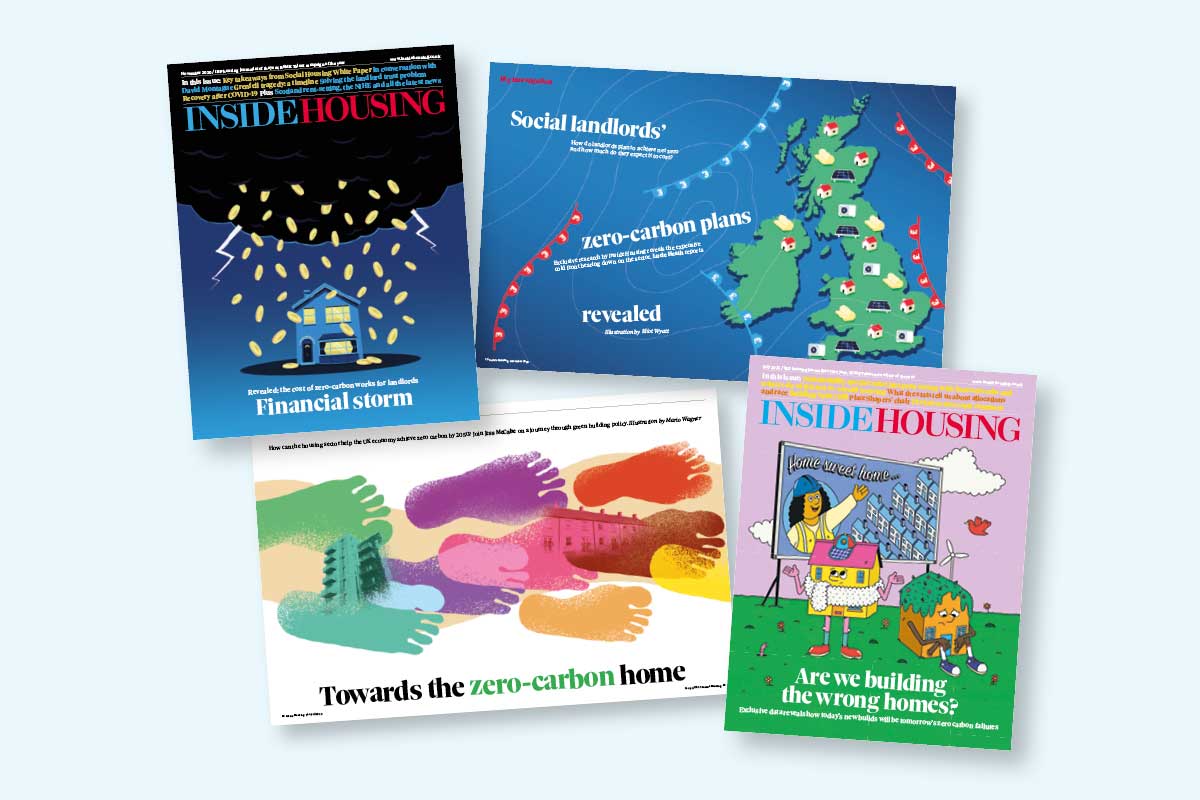The conference explained: what does zero carbon mean for social housing?
Zero carbon is a major strand of Housing 2021, and a growing priority for the country. What changes will this mean for social housing and what are the key questions to ask in sessions at the conference? Jess McCabe reports
Why is zero carbon such a big focus?
The government has legislated that the UK will reach net zero carbon emissions by 2050. This will have an impact on the whole of society – including social housing.
The session ‘Placing the green agenda at the heart of everything we do’ at 11am on 9 September should help put that big national figure into the context of social housing.
Haven’t we been here before with sustainable housing policy?
Well, yes. There have been policy ups and downs – in England in particular – which have upended the sector’s plans and economy around retrofits and green building. See our timeline of green housing policy for more on this. Since that was published, the Green Home Grant has come and gone.
But legislation is beginning to fill in the gaps. In England, we expect that from 2025 new homes will have to be much more energy efficient and cannot be connected to the grid. In Wales, from next year new social homes will need to have green heating systems to meet stricter energy-efficiency requirements. Scotland has a target for improving the Energy Performance Certificates (EPCs) of existing homes.
More changes will undoubtedly come soon for housing in all the nations, or the UK will not be able to meet the 2050 target.
That sounds expensive.
Yes, it will be. An Inside Housing investigation last year revealed that expected costs to retrofit all social homes will reach more than £100bn. Look out for the ‘Where’s the money?’ session at 12.15pm on 9 September for more. Where there is cost, there is opportunity. Look out for the session ‘The net zero procurement and skills challenge: £1trillion+ opportunity?’ at 2.55pm on 8 September on the same stage.
Is it a technical challenge, too?
The technology already exists to retrofit homes to a point where they are low cost to heat, use little energy, and are warm and comfortable. But it is does require expertise to make sure work is carried out properly.
What does it mean for new build homes?
Although the main challenge is retrofitting existing homes, the standards for building new homes are changing. Many argue that social landlords should be moving ahead of regulation, so that they are not building new homes which they then have to spend thousands retrofitting with insulation or new heating systems in a few years’ time. As Inside Housing reported in July, only 1.5% of homes that housing associations built in 2020/21 were rated EPC Band A.
Key questions to ask in the sessions
- What does net zero mean for the sector’s existing homes and new builds?
- How will social landlords finance these changes?
- What does government regulation look like now, what will change in the near future, and should landlords be taking action ahead of regulation changing?
Housing 2021 runs from Tuesday 7 September to Thursday 9 September. For more information about the conference, click here.













